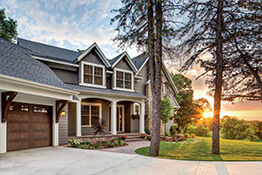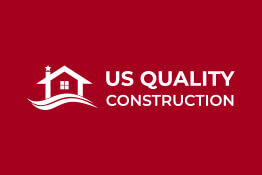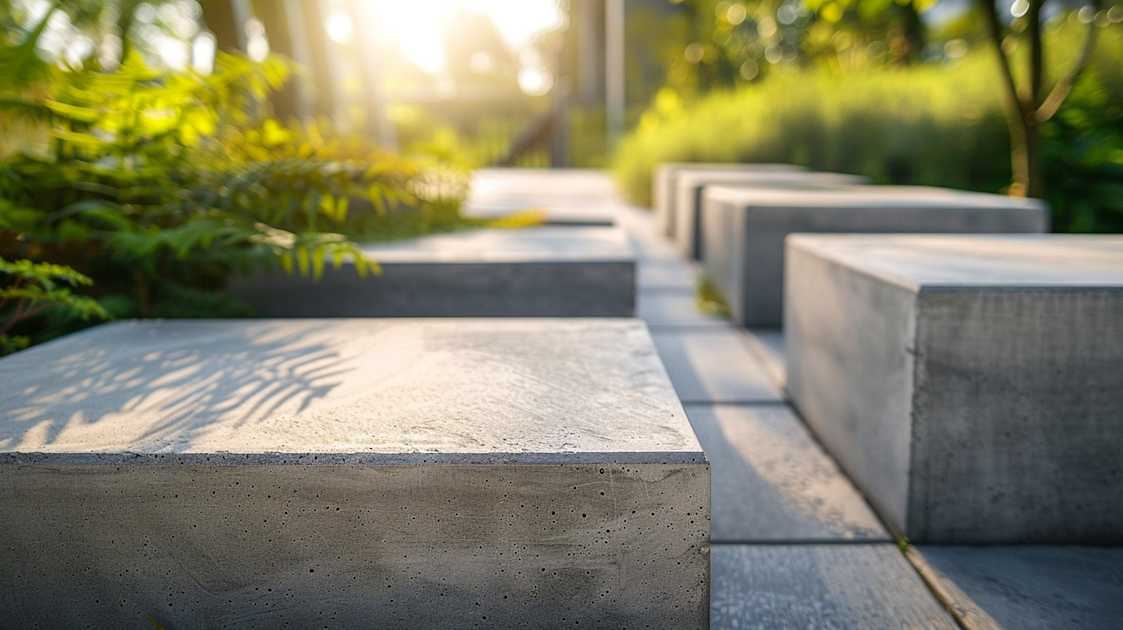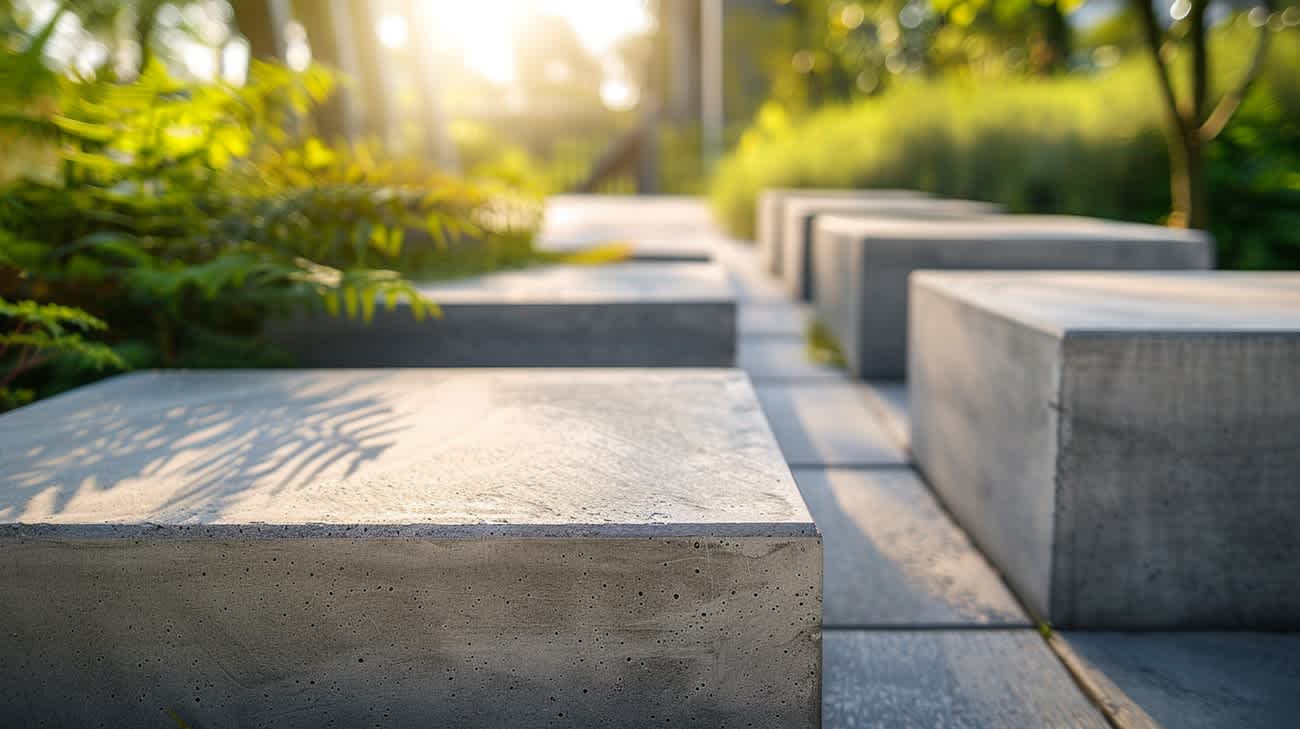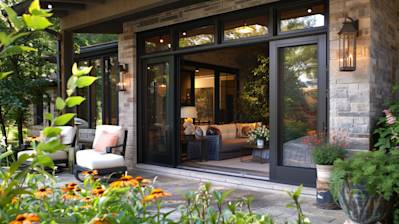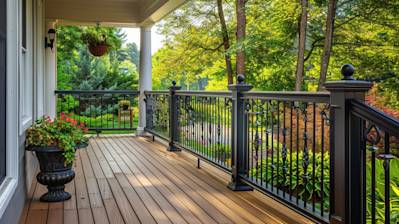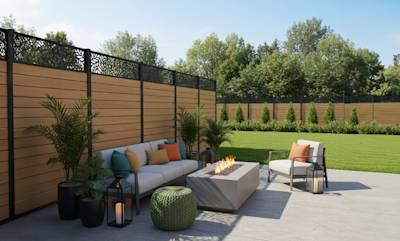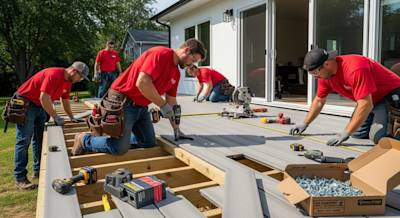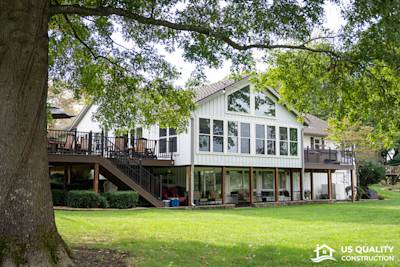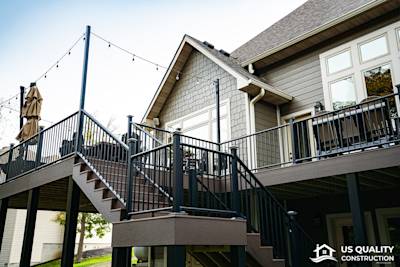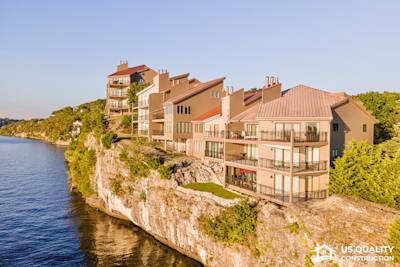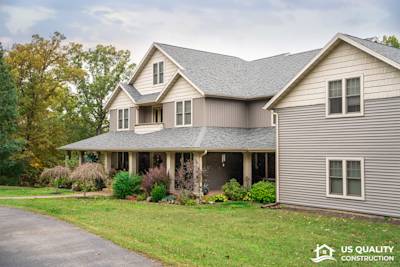Concrete deck blocks are an innovative, durable, and cost-effective solution for building decks, patios, and various outdoor structures. As a homeowner or contractor, understanding how these blocks can be used can greatly enhance the longevity and stability of your projects. This comprehensive guide explores everything you need to know about concrete deck blocks, from their advantages to installation techniques.
What Are Concrete Deck Blocks?
Concrete deck blocks, sometimes referred to as pier blocks, are precast post foundations that replace traditional footings or foundations for decks, sheds, and other outdoor structures. These blocks are typically made from high-quality concrete, designed to withstand environmental stresses, and built to last for decades.
Benefits of Using Concrete Deck Blocks
When considering building options, concrete deck blocks present numerous advantages:
- Ease of Installation: Unlike traditional poured concrete footings, deck blocks are simple to use and do not require any special skills or tools.
- No Digging Required: Skip the hassle of digging post holes or trenches with these above-ground solutions.
- Cost-Effective: Save money on materials like concrete mix and labor costs associated with traditional footings.
- Reusability: Move or adjust your project as needed, without the permanence of traditional foundations.
- Environmental Impact: Reduced environmental disturbance, as minimal earthwork is required.
How to Use Concrete Deck Blocks
Using concrete deck blocks is straightforward, but requires precise planning and execution to ensure your structure's integrity and safety. Below is a step-by-step guide on how to effectively utilize these blocks in your building projects.
Step 1: Planning and Design
- Determine the necessary load capacity for your deck. Consult local building codes for guidelines.
- Create a detailed plan or blueprint of your structure, knowing where each block will be placed.
- Calculate the number of blocks needed based on the size and design of the project.
Step 2: Site Preparation
- Clear and level the site where the blocks will be placed. Remove all vegetation, rocks, and debris.
- Compact the soil to create a stable surface for the blocks. Use a tamper for best results.
- Lay down a weed barrier fabric to prevent future growth around your deck or structure.
Step 3: Placement and Alignment
- Arrange the concrete deck blocks according to your design plan.
- Ensure the blocks are perfectly level using a spirit level, as uneven blocks can cause structural issues.
- Leave adequate space between each block to allow for airflow and drainage.
Step 4: Installing Support Beams
- Measure and cut your support beams according to the plan.
- Place the beams into the bracket or slot present on top of each block.
- Secure the beams in place. Double-check that everything remains level and aligned before proceeding.
Types of Concrete Deck Blocks
There are various forms and styles of concrete deck blocks to choose from, each suiting different structural needs:
- Notched Blocks: These have a molded notch to accommodate standard timber sizes. Ideal for simpler structures.
- Post Anchor Blocks: Include embedded steel brackets for additional stability, useful for elevated decks.
- Adjustable Blocks: Feature a screw mechanism to fine-tune height adjustments even after installation.
Maintenance of a Deck Built with Concrete Blocks
Like any structure, proper maintenance of a deck built with concrete deck blocks ensures its longevity and safety.
- Regular Cleaning: Sweep the deck regularly to remove leaves and debris that can hold moisture.
- Inspect Annually: Check for any signs of tilting or sinking in the deck blocks and re-level as necessary.
- Protect Wood: Use protective sealers or stains on wooden components to prevent rot or pest infestations.
Concrete Deck Blocks vs. Traditional Footings
Traditional deck footings require digging holes, pouring concrete, and a substantial curing period. In contrast, concrete deck blocks offer a more convenient option. Here’s a quick comparison:
Concrete Deck Blocks
- Faster installation
- Reusable
- Suitable for portable structures
Traditional Footings
- Permanent and immovable
- Suitable for heavy-duty structures
- Requires more time and labor
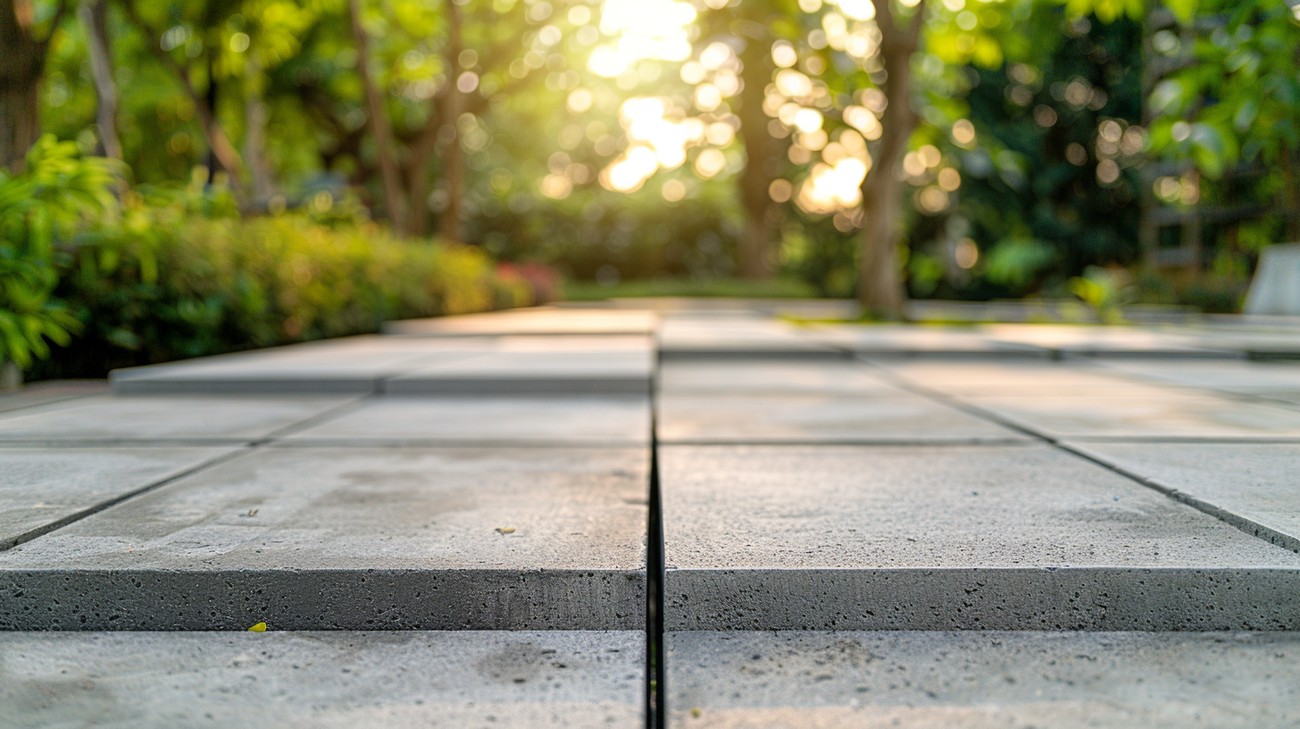
Frequently Asked Questions About Concrete Deck Blocks
How do concrete deck blocks support a deck?
Concrete deck blocks are designed to function as a foundation for decks, supporting the structure above them. These blocks are often crafted in a trapezoidal shape with a flat bottom that rests on the ground surface and not a dug footing. Their upper side features slots or notches to accommodate wooden beams or posts. By providing a stable base to distribute the load, concrete deck blocks ensure that decks remain level and secure. With their simple installation process, concrete deck blocks are an attractive option for DIY enthusiasts looking to build or enhance a deck with minimal hassle.
Are concrete deck blocks suitable for large decks?
While concrete deck blocks are a popular option for small to medium-sized decks, considering their limitations for large projects is essential. These blocks are best suited for decks with a relatively low profile or single level since they do not get anchored deep into the ground like traditional post footings. For expansive decks, especially those intended to support heavy loads or multiple levels, a more robust foundation may be necessary to ensure the structure's safety and longevity. Consulting with a structural engineer can help determine if concrete deck blocks are an appropriate choice for your specific deck construction.
Can I use concrete deck blocks on uneven ground?
Concrete deck blocks can certainly be used on uneven ground, though extra measures may be needed to ensure a level deck surface. One common method is to dig out or build up the earth in areas where adjustments are necessary or to use shims or pier pads beneath the deck blocks to achieve a level base. It's crucial to adequately prepare the ground and address drainage concerns to prevent movements caused by water accumulation or soil erosion. By properly managing the terrain, you can create a stable deck foundation with concrete deck blocks, even on uneven surfaces.
Do concrete deck blocks require special maintenance?
Concrete deck blocks are known for their durability and low-maintenance nature. Unlike wood, these blocks do not rot, and unlike metal, they do not rust. However, ensuring that the ground around them is well-drained can extend their lifespan and prevent shifting over time. Regular inspections are recommended to check for any movement or settling, particularly after heavy rains or seasonal changes. Additionally, periodic adjustments to the deck may be needed if the blocks settle unevenly, which can preserve the structural integrity of the deck for years to come.
How do I properly space concrete deck blocks for my deck?
Spacing for concrete deck blocks depends largely on the size and type of the deck being constructed. A general recommendation is to place deck blocks approximately six feet apart for standard wooden decks. This spacing helps to evenly distribute the load and provides adequate support. However, factors such as the deck height, local building codes, and intended usage should also be taken into account when determining precise block placement. Consulting specific guidelines or working with a professional can help optimize the spacing and ultimately contribute to the deck's stability and safety.
Can concrete deck blocks be used with other materials besides wood?
Yes, concrete deck blocks can be compatible with materials other than wood for building decks. While typically used with wooden beams and joists, these versatile blocks can also support metal framing systems, which are increasingly common in modern deck designs for their strength and longevity. When using alternative materials, it's important to ensure that the selected joists or beams fit securely within the slots provided on the concrete deck blocks, and that all components meet the necessary load-bearing requirements, ensuring a safe and durable deck construction.
Are concrete deck blocks suitable for use in all climates?
Concrete deck blocks work well in a variety of climates but require extra consideration in areas prone to extreme freeze-thaw cycles. In colder regions, the ground can expand and contract due to temperature fluctuations, potentially causing shifts or instability in deck blocks located on the surface. This instability can be mitigated by ensuring proper drainage to avoid water pooling around the blocks and by utilizing a deeper foundation solution if necessary. In generally mild climates, concrete deck blocks perform exceptionally well, providing a steady and resistant base for decking projects.

Exploring the Ins and Outs of Concrete Deck Blocks
Pros of Concrete Deck Blocks
Easy Installation
Concrete deck blocks make installation surprisingly straightforward. You don’t need to dig any deep holes or pour concrete footings, which saves a ton of time and mess. Just place them on the ground, adjust the positioning if necessary, and you're set to go. It’s DIY-friendly and cuts back on the grunt work quite a bit.
Cost-Effective
When it comes to budgeting, concrete deck blocks are gentle on the wallet. They’re typically cheaper than pouring concrete footings and do away with the need for expensive machinery and professional labor, thus lowering your overall deck-building costs significantly.
Portability and Adjustments
Have a change of heart about the deck's position? No problem! Concrete deck blocks can be moved around without major fuss. Unlike poured concrete, which is set in stone (literally), deck blocks offer flexibility in positioning, allowing you to make adjustments as needed before finalizing your deck’s placement.
Adaptability to Different Terrains
If you're dealing with uneven ground, concrete deck blocks can really shine. They provide the leeway to adjust the height and ensure level decking, all while accommodating the natural landscape of your yard. No digging or re-grading is necessary, making it a viable solution on uneven terrain.
Immediate Load-Bearing Capability
You can begin construction on your deck as soon as you set the blocks in place. Unlike concrete footings that require curing time, deck blocks are ready for action right from the get-go. This reduces downtime and helps you move along with your project at a faster pace.
Cons of Concrete Deck Blocks
Limited Load-Bearing Capacity
One downside is that concrete deck blocks aren’t suitable for supporting extremely heavy structures. They work well for smaller, lighter decks, but if you’re planning a large, elaborate design with features like hot tubs or solid roofing, deck blocks might not provide sufficient support.
Susceptibility to Ground Shifting
Since they rest above ground, concrete deck blocks are more susceptible to shifts due to soil movement or freeze-thaw cycles. This could lead to uneven decks over time if not monitored, requiring periodic adjustments to maintain level structures.
Regulations and Codes
Depending on where you live, local building codes might restrict or not recognize concrete deck blocks as a permissible foundation method. This can add some hurdles in the planning phase, potentially requiring additional steps to ensure compliance or needing alternative foundation approaches entirely.
Longevity Concerns
While durable, deck blocks lack the integrated strength offered by poured concrete foundations. Given their positional flexibility, they might end up shorter in lifespan if perpetual environmental factors cause movement or erosion around them, affecting structural integrity over the years.
Aesthetic Limitations
On the visual front, you may feel limited. Since the blocks are visible at the base of your deck, they may not fit seamlessly into every design. Covering them up can require extra resources and effort if you’re aiming for a flawless, integrated look for your deck’s base.

Final Thoughts
Concrete deck blocks are an excellent solution for creating a stable foundation for your outdoor projects, offering durability and ease of installation. Whether you're building a deck, a shed, or any outdoor structure, these blocks provide the support needed to ensure everything stays level and secure. They are not only practical but also a cost-effective option for homeowners looking to elevate their outdoor spaces without breaking the bank.
We understand that every project is unique, especially for those of you in Kansas City, MO, where conditions can vary. If you're considering using concrete deck blocks or need assistance with your next project, we invite you to reach out to us at US Quality Construction. Our team is dedicated to helping you turn your ideas into reality, so don’t hesitate to contact us for a consultation or request a free estimate. We’re here to ensure that your outdoor space gets the attention and care it deserves!
Tags: building materials, outdoor construction, home improvement,
